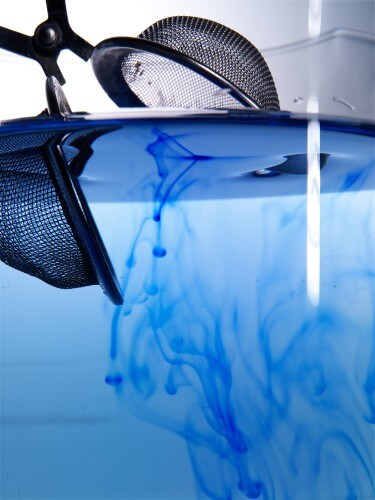The new polymers were developed in the laboratory of Dr. Yael Mishal, from the Robert H. Smith Faculty of Agriculture, Food and Environment at the Hebrew University, as part of research funded by the Kamin program of the Office of the Chief Scientist.

Water pollution with organic pollutants is a major source of concern because of the toxic and carcinogenic nature of these substances. Organic pollutants are common as a byproduct of production in various industries, including food, agriculture, coal, tar, plastics, leather, paint, pharmaceuticals, and metal. Among the various methods for water purification, adsorption is considered one of the most successful, due to its low price, universal nature and ease of operation. Clay minerals receive special attention as adsorbents because of their high surface area on the one hand, and low price and toxicity on the other hand. However, the effectiveness of these materials in removing organic molecules is significantly affected by various parameters and by the type of pollutant to be adsorbed.
Now, Application, the research and development company of the Hebrew University, presents an innovative adsorbent for the removal of pollutants based on clay minerals conjugated to various polymers to increase the ability to bind the pollutants to the clay. The polymers are selected according to their chemical compatibility with certain pollutants, so that adsorbents are created that are specially adapted to a given pollutant. These composite adsorbents have a higher pollutant removal capacity compared to activated carbon (the most common adsorbent). The technology is presented at the WATEC conference, held in Tel Aviv on October 22-24, 2013.
The new polymers were developed in the laboratory of Dr. Yael Mishal, from the Robert H. Smith Faculty of Agriculture, Food and Environment at the Hebrew University, as part of research funded by the Kamin program of the Office of the Chief Scientist. In addition, Mekorot's WaTech division accompanied the project from a business and professional point of view. The application is currently looking for potential partners for further development and commercialization of the product.
"Water pollution with organic pollutants is a worldwide problem. In developing countries, 70% of industrial waste is discharged without any preliminary treatment into usable water sources. Even in countries with high incomes, the problem of pollution with organic pollutants is expected to worsen due to the increase in the use of fertilizers for food production and wastewater," said Yaakov Michlin, CEO of Apisil. "For this reason, it is important to develop cheap, effective and safe water treatment methods to ensure an adequate supply of clean water around the world. Dr. Mishal's invention is a significant step in this direction, especially since the new polymer-clay composites can be adapted for the effective removal of specific pollutants. "
